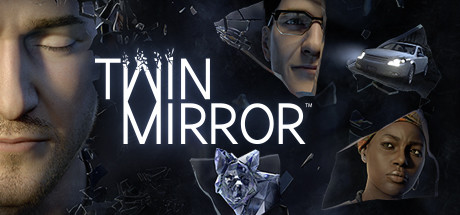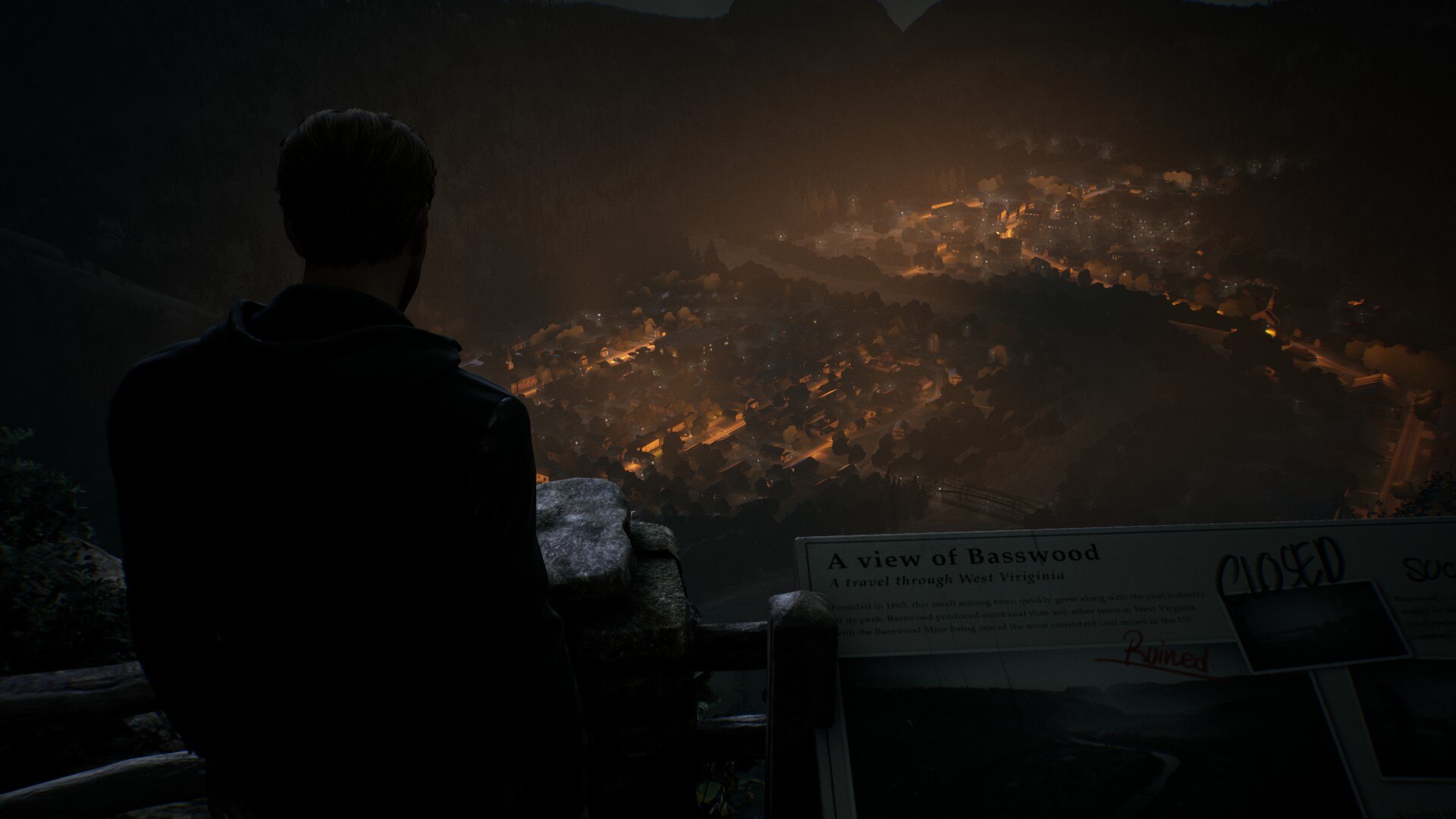
Twin Mirror
The general opinion about Twin Mirror is that it doesn’t manage to reach the same high bar that other games developed / published by DONTNOD Entertainment already set, and after I played the game several times already, I can understand where this statement is coming from. If you expect a moving narrative or a story similar in greatness as for example the one that Life is Strange offers, then you won’t find it here. But by all means don’t take that as “Twin Mirror is a bad game” – it isn’t, it just lacks the depth, the spark, and the impact that their other games have on you when you play them.

Still, Twin Mirror is an immersive game. If I were to describe it, I’d say it’s more of a movie rather than a game considering that the player interactions are kept to a minimum. One playthrough takes around 7 hours and it’s extremely linear, consisting mostly in watching the scripted cutscenes and dialogues based on the choices you make. In that regard, Twin Mirror does some things very well, but it also has its faults. It’s mainly advertised as a “Choose Your Own Adventure” game, albeit most of the choices don’t matter for how the story unravels up to the ending sequences – regardless of what you choose, the outcome is identical and you have pretty much the same idea, but expressed through different words no matter what you pick. The choices that do count though are color-coded and frankly, I was relieved that the game shows me that I am about to make a meaningful decision which is bound to affect the rest of the game. Even the earlier choices from this category can have repercussions in the late parts of the game. Unfortunately, there are only 6-7 choices like this, and they are split into two categories: analytical and social, leading you to slightly different playthroughs and quite different endings.

You take the role of Sam Higgs – a journalist who comes back to his small hometown of Basswood to attend the funeral of his best friend Nick only to find out that he was actually murdered. Sam can’t stop his investigative nature and together with his ex-girlfriend Anna, sets on a quest to find the culprit and expose his deeds to the whole town. Since it’s a detective-themed story, one would expect some plot twists, unfortunately Twin Mirror fails to deliver them. Surely, there are some unexpected things happening, but the game is mostly predictable (apart from maybe who the big bad is) and also doesn’t manage to give you that feeling of thrill, of keeping you on your toes until you find the identity of the killer.

The name of the game comes from the fact that Sam has a split personality, with his alter ego accompanying him at every step. The duality of his brain is the one that gives the two distinctive paths in the game – while Sam is rather cold and cynical (and also analytical), his twin ego tries to encourage Sam to be more social, more caring towards others. At least, that is the whole idea of the game – but for me, these two personalities were so similar that I had real trouble grasping the distinctive aspects between them. The alter ego is neither a devil on Sam’s shoulder, nor an angel with a mission to protect Sam, but indeed more of a twin, an advocatus diaboli meant to dispute Sam’s actions or bicker at him. Still, choosing to listen to him would lead Sam on a social path, while ignoring his advice will result in him remaining an analytical person.

There are plenty of characters to encounter, but most of them have only a couple of dialogue lines. Apart from Sam, Nick and Anna (and marginally Nick’s daughter) the characters are not at all developed, and the collectible items that you can find lying around and which reveal a piece of their background story are not enough to grant them distinctive personalities. Perhaps the original plan was to give them a more substantial role into the plot, yet as the game is now, it feels that these characters are mostly treated as fillers – they don’t add anything meaningful to the story, aside from them forming together the small and intertwined community of Basswood. Since they remain undeveloped, they won’t make you empathize with them or connect to them in any way.

Possibly the nicest part of the game is Sam’s mind palace – a place where he can revisit old memories triggered by various collectibles that you can gather, but also where he can reconstruct a key sequence of actions related to the murder. These detective sequences involve first scanning the scene for clues, then answering correctly to three questions based on the info you gathered from your surroundings. This will trigger a live simulation of the actions expressed by your choices. If they are incorrect, the game won’t penalize you in any way but you won’t progress further until you get all of them right (which shouldn’t be that difficult since there are only 9 possibilities and the correct choices are usually pretty obvious).

Perhaps the biggest issue is the inability to skip cutscenes. With a game as linear as Twin Mirror is and as heavy in cinematic sequences as it is, plus having two separate routes of which most of the content is the same, rewatching several hours of cutscenes in a second playthrough without a way to skip already seen scenes is utterly annoying. Outside the main choices, most of the players would probably want to see alternative options in dialogues with all the characters, however there’s no indication about what you selected in the previous playthroughs, in order to avoid selecting it again.

For the asking price of $30, I feel that the game fails short to deliver a memorable experience, plus it doesn’t justify the high price considering that you can finish it in 7 hours (unless you want to see all endings / do a second playthrough for the main alternative choices). The plot is rather slow-paced and it lacks those factors that stimulate your brain, that tingly sensation that a murder mystery should give you. It’s still enjoyable to play if you like heavy narrative games, in which you sit back and relax and don’t mind repetition in subsequent playthroughs. It’s undoubtedly a beautiful game, with high-quality 3D graphics, fully voiced lines, great soundtrack and Dontnod’s classic formula focusing on internal conflicts, yet it feels somewhat mediocre compared to their other works.